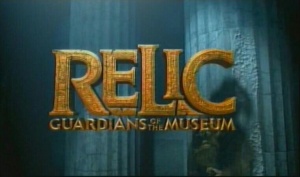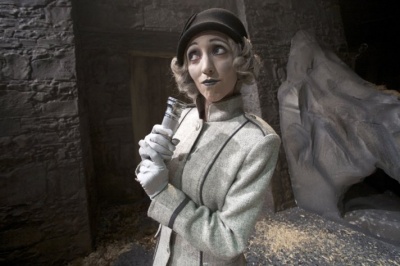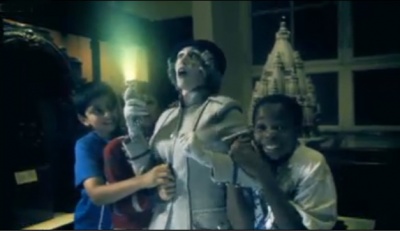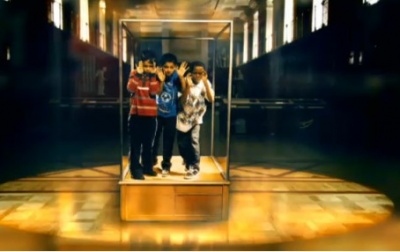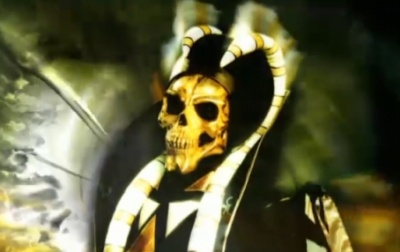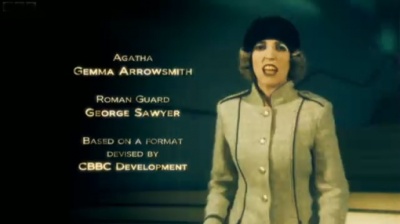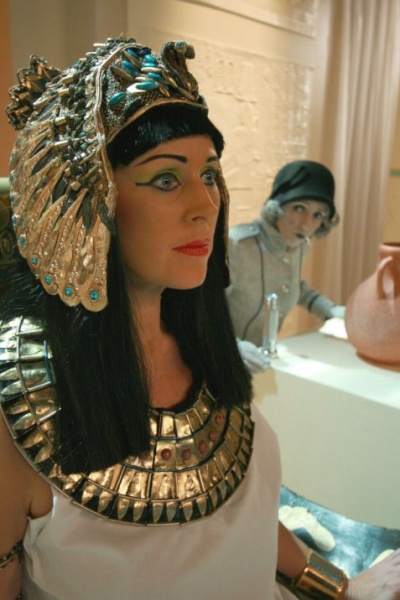Relic - Guardians of the Museum
(→Broadcast) |
(→Broadcast) |
||
| Line 8: | Line 8: | ||
== Broadcast == | == Broadcast == | ||
| - | BBC One, 21 January to 25 March 2010 ( | + | BBC One, 21 January to 25 March 2010 (10 episodes) |
| - | CBBC, 27 March to 29 March 2010 ( | + | CBBC, 27 March to 29 March 2010 (3 episodes in the resumed series) |
</div> | </div> | ||
Revision as of 01:32, 16 December 2013
Contents |
Host
"Agatha" (Gemma Arrowsmith)
Broadcast
BBC One, 21 January to 25 March 2010 (10 episodes)
CBBC, 27 March to 29 March 2010 (3 episodes in the resumed series)
Synopsis
Children's adventure quiz show revolving around items in the British Museum. Three children stay overnight in the museum where they must successfully answer questions and complete a series of challenges in order not to be incarcerated in the museum forever.
Now, being a children's show, there is a backstory to all of this, though like some dessicated old relic, it's best not to poke it too much lest it crumble to dust. Apparently, the British Museum is possessed by the Dark Lord and his hooded minions. OK, that's a familiar enough story: in these days of funding cuts, it's hard enough for museums to pay for the upkeep of their buildings, let alone deal with the threat of infestation by the forces of evil. All par for the course.
However, the British Museum has one thing going for it: at night, a ghostly tour guide named Agatha summons children to the museum to battle the Dark Lord through the medium of sub-Crystal Maze games. It's not clear why this would have any effect on the Dark Lord, or why it needs to be children particularly, or whether the management of the British Museum know what's going on, or whether it wouldn't be much simpler just to bring in Rentokil to deal with the problem. Like we said, you can't get away with poking this format too much. Have we broken it? No, it was like that when we got here.
So much for the story. The actual gameplay works like this: there are three games, each set in a different historical time period, and generally breaking down as one physical, one logical and one knowledge-based. If the team successfully completes a game, then they all get to see a short film about a relic in the museum; if not, only one gets to see it, and must convey what they remember to their teammates afterwards. The games themselves are played in a studio, with only the linking sections actually filmed in the museum, and transitions are effected via Agatha's torch, which doubles as a time-travel device, trebles as a vision-summoning device, and quadruples as a directed lighting device. Actually no, that's just a torch, isn't it? Scratch that last one then.
After three games, the final act, which decides whether the team win or lose, is a test of the knowledge gleaned from the three short films. For this, Agatha and the team assemble in front of the Museum and pretend to face the CGI Dark Lord who "appears" in front of them. The players take turns to answer questions individually, and the win condition is that they get three right before they get three wrong - in other words, it's a non-competitive version of the tried-and-tested five-question playoff. Players who get an answer wrong are removed from the game (and are seen inside a display case in the museum), so it can come down to one player answering three questions solo. Win and they take away a "golden scarab", lose and they get to pretend they've been trapped in the display case forever.
This, like much of the rest of the show, requires the children to act - always a potentially dodgy proposition, and inevitably some are better than others. Though none are quite as bad as the wisely uncredited artiste who provides the voice of the Dark Lord. Even in sound only, he manages to put in a performance so hammy that its consumption is banned by at least two major world religions.
Worse, though, is that many of the games just aren't very good. Case in point: a game in which the team was given a set of square pieces and simply had to stack them up to make a pyramid. Not much of a puzzle to start with, but also not improved by sounding an alarm every now and again, at which the team had to lie down in sliding coffins, and one would be temporarily removed from the game for no real reason, while spirits or something (look, we all know it was just production assistants, OK?) arbitrarily removed some of the levels that the players had already placed on the pyramid. Simply a bad idea that should never have made it to the screen.
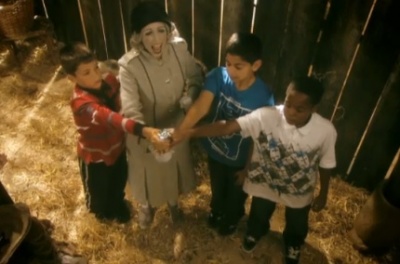 Agatha's torch in "show us 45 seconds of historical detail on an artefact selected from the collection of the British Museum" mode
Agatha's torch in "show us 45 seconds of historical detail on an artefact selected from the collection of the British Museum" modeStill, it wasn't all that awful. As a sort of educational, museum-set Jungle Run-lite, it was fairly passable, there were some nice visual touches (the facade of the British Museum all lit up at night made for a very impressive backdrop for the endgame) and its blend of history and magic seems to have gone down well with the target audience. But overall, a bit of a missed opportunity.
Trivia
Agatha delivered a different closing piece to camera over the end credits, depending on whether the team won or lost.
Produced to tie in with the Radio 4 series A History of the World in 100 Objects. The thirteen items used in Relic are a selection from the hundred featured in the radio series, which in turn were selected from an estimated seven million (!) in the British Museum collection.
The show won in the Entertainment category at the 2010 Children's BAFTA Awards.
Pictures
See also
Web links
The British Museum with information on the thirteen featured relics.

